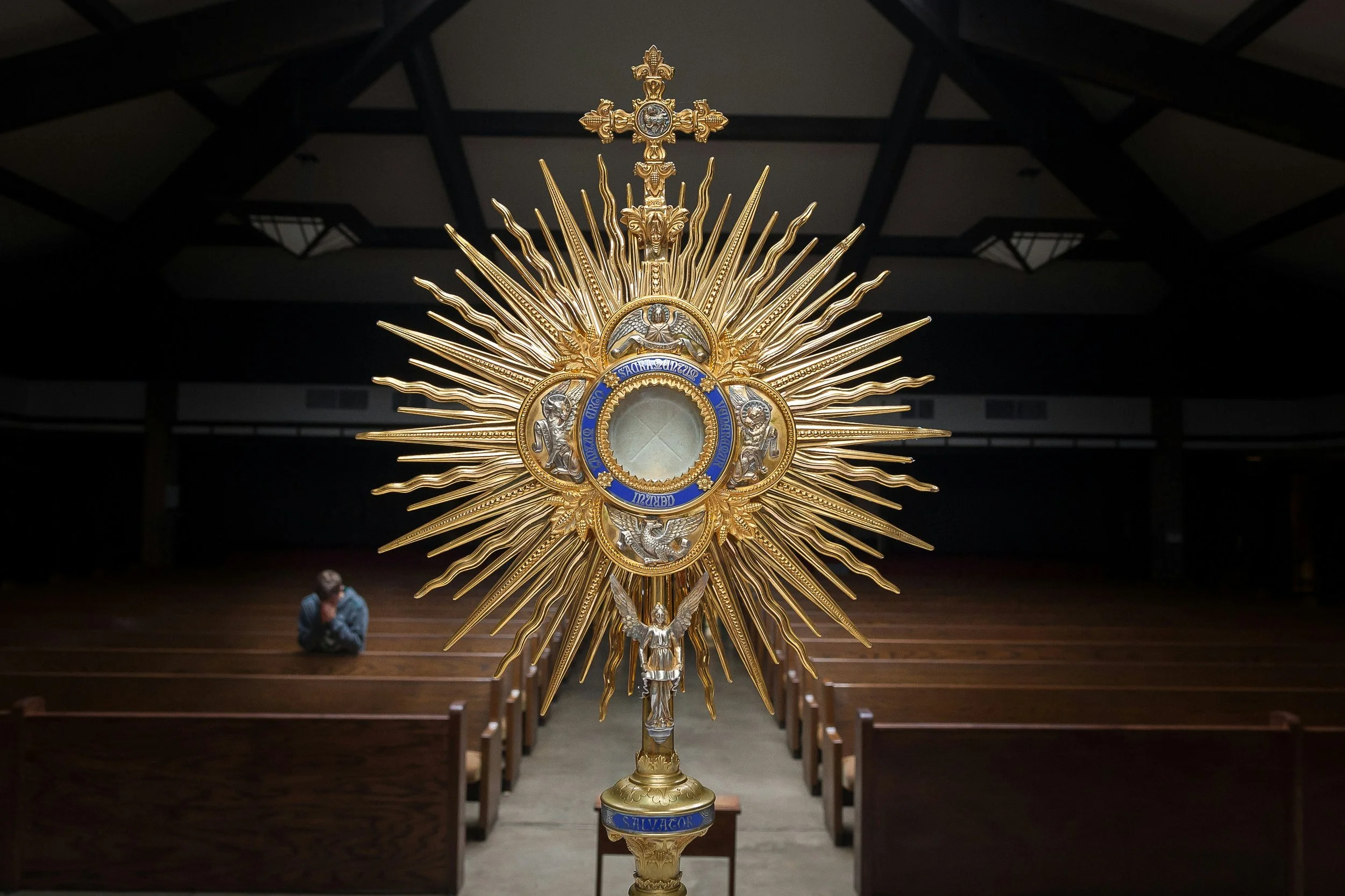The Challenge
The seven sacraments of the Catholic Church are defined as “an efficacious sign of grace, instituted by Christ and entrusted to the Church, by which divine life is dispensed to us" (CCC 1131). This means that sacraments are outward signs that symbolize and bring about the grace they signify. Through the sacraments, the faithful receive the sanctifying grace necessary for salvation and spiritual growth. The sacraments are life-changing graces.
The Church must understand how to use the sacraments to respond to all suffering. The laity of our faith must learn the sacraments. How do we teach the needy and the sick to use sacramental grace to save our families, promote healing in mental health, and attain peace?
The Sacraments
“Enjoy the fragrance of eternal life, breathed on you by means of the sacraments.” - St. Ambrose (340AD)
Catholic engagement in the U.S., where the proportion of practicing Catholics—defined by regular Mass attendance—has been on the decline. In 2024, approximately 28% of Catholics attend Mass weekly. This is often used as a key measure of "practicing" Catholicism, as the Eucharist is central to Catholic faith.

The slow decline of Catholic clergy in the United States
Decline of active practicing Catholics in the U.S. (%)
Why are people leaving the Church?
-
Many Catholics leave because they disagree with Church stances on social, moral, or theological issues.
-
Some Catholics feel the Church fails to provide spiritual nourishment or relevance to their daily lives. This can include dissatisfaction with homilies, lack of personal connection with clergy, or a perceived lack of focus on the core teachings of Jesus
-
Clerical abuse scandals and the Church's handling of these cases have led to widespread disillusionment. For some, the perception of hypocrisy or failure to hold leaders accountable contributes to their decision to leave
-
Personal experiences, such as feeling judged, unwelcome, or alienated by other Catholics or clergy, can drive individuals away. This is particularly true for marginalized groups or those facing life circumstances not fully supported by the Church, such as divorced Catholics
-
A growing number of individuals identify as "spiritual but not religious" or "nones," reflecting a broader societal trend of disengagement from organized religion. Younger generations, in particular, may leave due to a lack of perceived relevance or the appeal of alternative spiritual practices.
Some leave because of influence from non-Catholic spouses, friends, or partners or because they marry outside the Church and don't maintain regular participation.
For others, practical barriers like busy schedules, family demands, or a lack of strong community ties within the parish can result in drifting away from regular Church participation.
The Answer: Small Groups
Small groups in the Church
About The Final Summit
I was completely Agnostic with a sprinkle of new-age spirituality until a lightning bolt nearly knocked me off of a mountain…
You will quickly figure out your belief system when you think you have limited time in your life. In 2014, I rapidly became a believer in God and a Christian during a near death experience. I was anticipating the birth of my son and didn’t think I would live to see that day. I made it off that mountain and my life has never been the same.
I poured myself into self improvement, non-secular work, and evangelical Christian ministries. After working a short time in pastoral services, I began studying the early Christian church and the Apostolic Fathers during the first three centuries. At the time I had many lingering questions about faith and discipleship in Christ. Their writings were life altering. In 2022, I converted to the Roman Catholic Church. I turned to the Catholic Church during a time when my family and personal life was in shambles. Much of my flesh fought against this decision and I quickly faced the loss of more relationships.
I knew the value of community and with my experience in leadership and small group formation. I decided to start a ministry dedicated to building strong small groups within the Catholic Church. I wanted to enable my community in fostering leaders, understanding the Catechism, and to take full advantage of the Sacramental graces that I had been missing my whole life.
The Final Summit is the mountain of Purgatory. The final climb that we all make on our journey of sanctification. It is the suffering of trials. The bearing of hardships and pain. All done through and with the community of the Church. The source and summit of this climb and our faith is the Eucharist. It is Jesus Christ.
Jonathan Burnos is the Executive Director and Founder of The Final Summit. He is a professional speaker, blogger, trainer, and published author. He has been working in the corporate training space for over 25 years.









